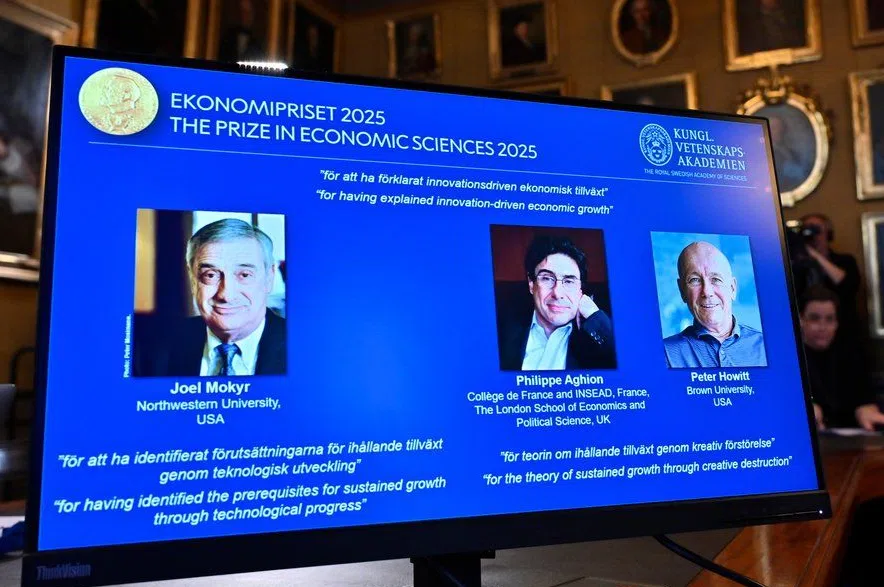by Ritika Dubey
Canadian economist Peter Howitt is among the group of three researchers who won this year’s Nobel Memorial Prize in economics.
The Royal Swedish Academy of Sciences announced Monday that Howitt, along with Dutch-born Joel Mokyr and French Philippe Aghion, received the prize for “having explained innovation-driven economic growth.”
Read more:
- Carney calls hostage release under Gaza peace deal ‘moment of profound relief’
- There are lessons to be learned from Canada’s wildfire season and evacuations
- Oscar-winner Diane Keaton, star of ‘Annie Hall’ and ‘The Godfather,’ dies at 79
Reached early Monday, Howitt said he was thrilled.
“It’s just the dream of a lifetime come true,” he said.
Canada is home to many of the world’s brightest minds. With a lifetime of pathbreaking research on how innovation and human ingenuity are essential engines of growth, Peter Howitt’s work is a foremost example of Canadian ideas having global impact.
— Mark Carney (@MarkJCarney) October 13, 2025
Congratulations Peter on your… https://t.co/OtP4qpG4iQ
Howitt said he found out about the prize from a persistent Swedish reporter who called his wife’s phone early in the morning, even before the committee could reach the economist.
By the time Howitt received his official notice from the committee, he already knew.
Howitt said his day was starting to look very different after the call.
“I’m going to be spending the day answering phone calls,” he said.
“We didn’t have any champagne in the fridge in anticipation of this,” he added.
Howitt and Aghion relied on mathematics to explain how creative destruction works, a key concept in economics that refers to the process in which beneficial new innovations replace — and thus destroy — older technologies and businesses. The concept is usually associated with economist Joseph Schumpeter, who outlined it in his 1942 book “Capitalism, Socialism and Democracy.”
Howitt said he was looking forward to celebrating the win with his co-author Aghion. The duo worked together for about 30 years, he said.
“I’m really looking forward to getting together with him, to celebrating with our family,” he said. “We have children all around North America, and we look forward to going to Sweden together.”
Aghion said he was shocked by the honour.
“I can’t find the words to express what I feel,” he said by phone to the press conference in Stockholm. He said he would invest his prize money in his research laboratory.
Asked about current trade wars and protectionism in the world, Aghion said that: “I am not welcoming the protectionist way in the U.S. That is not good for … world growth and innovation.”
Both economists studied the mechanisms behind sustained growth, including in a 1992 article in which they constructed a mathematical model for creative destruction.
Howitt, 79, received his bachelor’s degree in economics from Montreal’s McGill University and his master’s degree from the Western University in London, Ont. He is a professor of social sciences at Brown University in Rhode Island.
“The laureates’ work shows that economic growth cannot be taken for granted. We must uphold the mechanisms that underlie creative destruction, so that we do not fall back into stagnation,” said John Hassler, chair of the committee for the prize in economic sciences.
Half of the 11 million Swedish kronor (nearly $1.2 million) prize goes to Mokyr and the other half is shared by Aghion and Howitt. Winners also receive an 18-carat gold medal and a diploma.
The economics prize is formally known as the Bank of Sweden Prize in Economic Sciences in Memory of Alfred Nobel. The central bank established it in 1968 as a memorial to Nobel, the 19th-century Swedish businessman and chemist who invented dynamite and established the five Nobel Prizes.
Since then, it has been awarded 57 times to a total of 99 laureates. Only three of the winners have been women.
— with files from The Associated Press
Read more:











